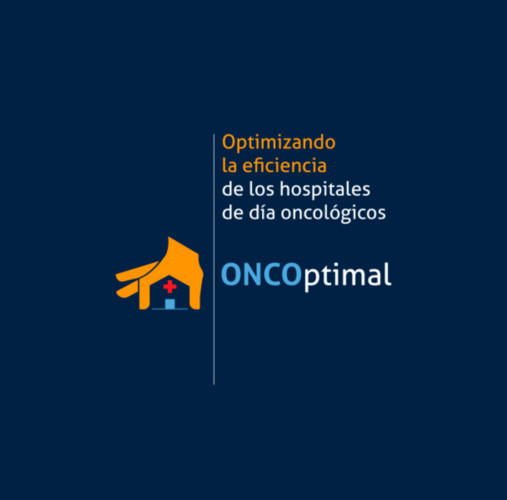
Summary
Rates of cancer are rising in Spain, and more people than ever are accessing treatment at day hospitals across the country.1 Long waiting times for medication and treatment; inefficient use of resources, leading to bottlenecks in the care pathway; and errors in prescriptions can all cause delayed treatment, increased patient toxicity, poorer survival rates and reduced patient satisfaction.2 The ONCOptimal project was started to generate recommendations to improve efficiency at day hospitals across Spain. Applying the project’s recommendations – which focus on the introduction of new technologies as the most viable and cost-efficient way to reduce waiting times and improve patient safety – can lead to national savings of €2 billion, reduce waiting time from diagnosis to treatment by eight days, and save more than 4,500 hours of workforce capacity a month.2
Challenge
Cancer rates in Spain, like those in much of Europe, are rising fast. By 2045, cases are expected to increase by over 33% – meaning more than 370,000 people will be living with cancer.1 An increase in cancer diagnoses also means an increase in demand for treatment. Day hospitals – care facilities that provide diagnostics, examinations and treatment without inpatient admission – are the preferred point of care for cancer patients. And these facilities are experiencing high demand, which they are unable to meet.2 Issues reported from day hospitals include:2
- delays and errors in appointment organisation for patients, causing wasted resources and delays in treatment commencement
- delays in lab results due to low laboratory capacity; these lead to hospital admissions and delays in treatment
- reduced face-to-face time with healthcare professionals (HCPs) due to staffing shortages
- a lack of electronic prescription services to synchronise prescribing and medication administration between HCPs and pharmacies; this results in delays to treatment, errors in medication preparation and inefficient use of resources
- inaccuracies in the administration of cancer drugs due to a manual prescribing service that allows for human error.
These factors are partially caused by a lack of government funding, low staffing levels and outdated prescribing systems – all of which lead to delays in treatment, poorer survival outcomes and low patient satisfaction.2
Solution
To combat the inefficiencies experienced by cancer patients in day hospitals, the Foundation for Excellence and Quality in Oncology (ECO Foundation) collaborated with a variety of professional societies and patient associations to create the Optimizing the Efficiency of Oncology Day Hospitals (ONCOptimal) project.2 The aim of the project was to generate recommendations to optimise efficiency.
ONCOptimal was conducted in three phases: first, a scientific committee consisting of experts from seven partner organisations was created; the project then assessed the care situation using a survey aimed at healthcare professionals (HCPs), patients and hospitals, and studied the impact of emerging technology on infusion treatment and its duration. And finally, based on this research, a set of recommendations were made. These included:2
- having at least one nurse – who would have expertise and training in oncology – per six day patients
- integrating an electronic prescription service with standardised preparation software and prescription validation to reduce errors and minimise delays in treatment onset
- having a validated protocol for infusion administration to ensure appropriate treatment and reduce adverse effects.
What has been achieved?
The ONCOptimal project highlighted critical issues in care and their impact on patient satisfaction and survival, and showed where improvements are needed.3 It also demonstrated that the introduction of new technologies is the most viable and cost-efficient way to reduce waiting times and improve patient safety. By computerising prescription services and medication validation, adverse effects have been minimised, waiting times reduced and over €2 billion saved.2 The adoption of the recommendations also led to an eight-day reduction in waiting time from diagnosis to treatment for patients, and saved 4,795 hours per month on laboratory administration.2
Next steps
ONCOptimal will advocate for the adoption of its recommendations at day hospitals across Spain. Individual hospitals will need to tailor them to their needs and contexts, and use a phased implementation process. The project aims to provide examples of hospitals where recommendations have been successfully implemented to demonstrate real-world efficiency gains and allow for best-practice learnings for other hospitals.3
The project also hopes to carry out studies on the long-term impact of implementing these recommendations, including patient survival rates and overall hospital efficiency.3
References:
- International Agency for Research on Cancer. 2024. Cancer Tomorrow. Available from: Available here: https://gco.iarc.fr/tomorrow/en/dataviz/bars?populations=724 [accessed: May 2024]
- Fundación para la Excelencia y la Calidad de la Oncología. 2023. Optimizando la eficiencia de los hospitales de día oncológicos. Madrid: Fundación para la Excelencia y la Calidad de la Oncología [accessed: June 2024]
- Parado T. 2024. Personal communication by email: 06/06/24 [accessed: June 2024]